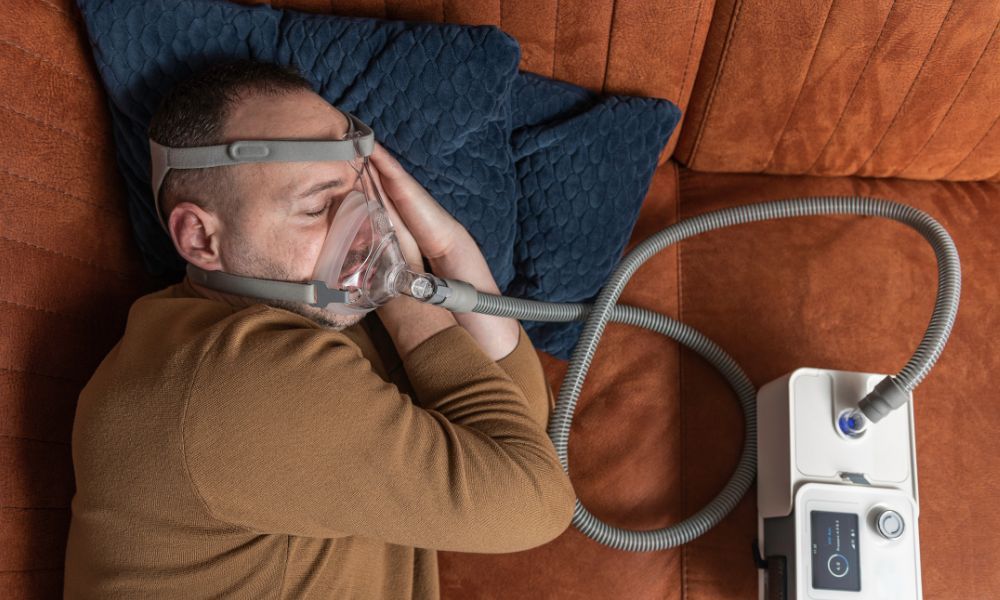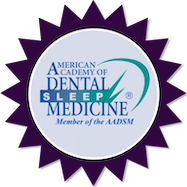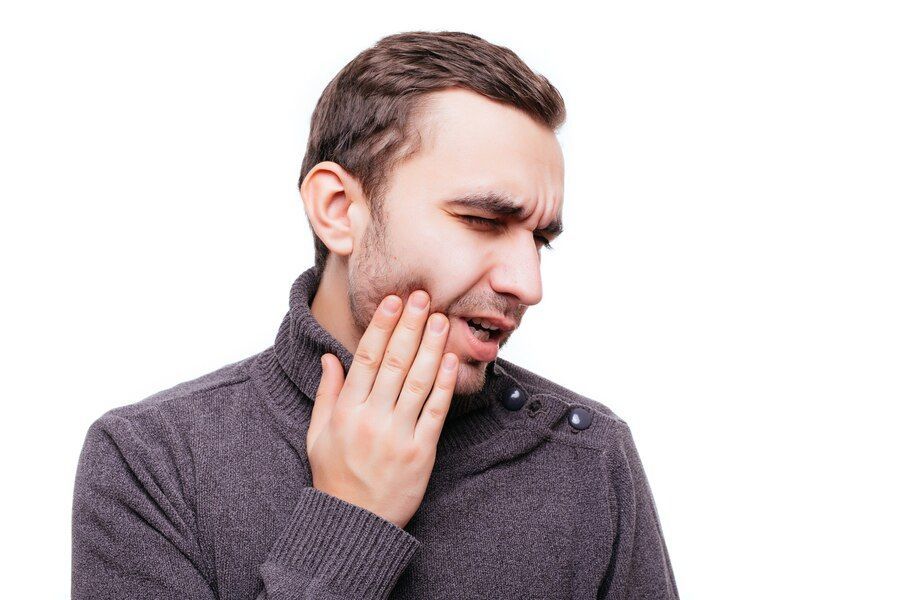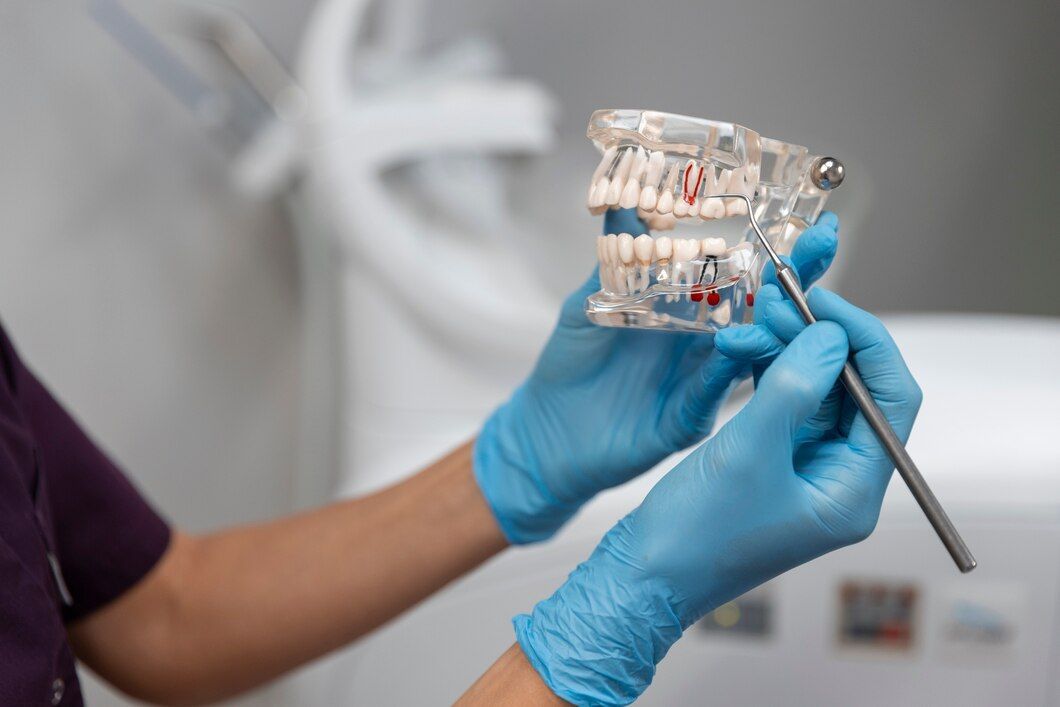Welcome to Fuller Sleep & TMJ Solutions | Greensboro, NC | frontdesk@fullersleep.com
Sleep Apnea & Lifestyle Changes: Enhancing Treatment Success

Sleep apnea is a widespread sleep disorder characterized by disruptions in breathing during sleep, leading to an array of adverse health effects and reduced quality of life if left untreated. While professional treatments like oral appliance therapy are vital in managing sleep apnea, personal lifestyle changes can also play a pivotal role in enhancing treatment success. At Fuller Sleep & TMJ Solutions, a dental sleep apnea clinic in Greensboro, North Carolina, we are dedicated to providing comprehensive care and education to help our patients achieve healthy sleep and improved overall well-being.
We will delve into the various lifestyle changes that can complement sleep apnea treatments and maximize their effectiveness. While these lifestyle adjustments might not provide sufficient treatment on their own, they can bolster the positive effects of professional interventions, ultimately leading to better outcomes. Some of the lifestyle changes we will discuss in this series include maintaining a healthy weight, adopting a sleep-friendly diet, incorporating exercise into your daily routine, practicing good sleep hygiene, and avoiding harmful substances such as tobacco and alcohol.
While these lifestyle changes can further validate the positive impacts of sleep apnea treatments, it is essential to understand that every individual is unique, and the benefits may differ from one person to another. Nonetheless, adopting healthier habits usually promises an improvement in overall health, and incorporating them as part of a holistic approach to treating sleep apnea can lead to significant progress.
In this guide, we will provide practical tips on how to incorporate these lifestyle changes into your daily routine alongside the expert treatment you receive at Fuller Sleep & TMJ Solutions. With the information and guidance offered in this series, we aim to assist those affected by sleep apnea to take control of their treatment journey and make well-informed decisions that positively impact their lives.
Join us as we explore the power of personal lifestyle changes in conjunction with sleep apnea treatments to achieve lasting success and better sleep. Let the Fuller Sleep & TMJ Solutions team help you take that crucial first step toward a healthier, more restful life.
Healthy Weight Management
For individuals with sleep apnea, maintaining a healthy weight can have a profound effect on the severity of their condition and the success of their treatment. Obesity is a significant risk factor for sleep apnea, as excess fat deposits around the neck and throat can put added pressure on the airways and obstruct airflow during sleep. In some cases, losing weight can drastically reduce sleep apnea symptoms and even lead to complete symptom resolution. Here are a few tips on managing your weight for better sleep apnea treatment outcomes:
- Nutritious Diet: Focus on consuming a well-balanced diet with plenty of fruits, vegetables, whole grains, lean protein, and healthy fats. Avoid processed foods and added sugars to keep your caloric intake within a healthy range.
- Portion Control: Be mindful of portion sizes to prevent overeating. A helpful strategy is using smaller plates and bowls, which can make it easier to consume fewer calories during meals.
- Regular Exercise: Incorporate regular physical activity into your daily routine to help maintain a healthy weight and strengthen your respiratory system. Consult with your healthcare provider before starting a new exercise regimen.
Sleep-Friendly Diet
Dietary choices can also have an impact on sleep apnea symptoms and treatment effectiveness. By choosing sleep-friendly foods and avoiding those that may contribute to disrupted sleep or airway obstruction, you can enhance your sleep quality and the success of your sleep apnea treatment.
- Avoid Heavy Meals Before Bedtime: Eating large meals close to bedtime can worsen snoring and sleep apnea symptoms, as they put extra pressure on the diaphragm, making breathing more difficult during sleep. Aim for a lighter meal a few hours before bedtime.
- Limit Alcohol and Caffeine: Alcohol can relax the muscles in the airway, increasing the likelihood of snoring and sleep apnea episodes. Caffeine, on the other hand, can interfere with your ability to fall asleep. Limit your intake of both and avoid consuming them close to bedtime.
- Utilize Sleep-Inducing Foods: Certain foods can naturally aid in promoting sleep, such as those rich in tryptophan, magnesium, calcium, and melatonin. Examples include milk, turkey, almonds, and cherries.
Regular Exercise and Sleep Hygiene
Regular exercise has been shown to improve sleep quality and minimize sleep apnea symptoms. It strengthens the muscles around the airway, supports weight management, and reduces inflammation. Here are some tips to help you incorporate exercise into your lifestyle and practice good sleep hygiene:
- Establish a Consistent Exercise Routine: Aim for at least 30 minutes of moderate aerobic activity, like brisk walking or swimming, most days of the week. Consult with your healthcare provider before beginning a new exercise program.
- Create a Sleep-Friendly Environment: Make your bedroom conducive to sleep by keeping it cool, dark, and quiet, and invest in a comfortable mattress and pillows.
- Maintain a Consistent Sleep Schedule: Try to go to bed and wake up at the same time every day, even on weekends, to establish a consistent sleep rhythm.
Avoiding Harmful Substances
Certain substances, like tobacco and alcohol, can have a detrimental effect on sleep apnea symptoms and treatment success. Here's how to navigate the harmful impacts of these substances:
- Quit Smoking: Tobacco smoke irritates and inflames the airway, which can exacerbate snoring and sleep apnea symptoms. Consult with a healthcare professional for assistance in quitting.
- Limit Alcohol Consumption: As mentioned earlier, alcohol can relax the muscles in your airway, worsening sleep apnea symptoms. Consider minimizing your alcohol intake and avoiding it close to bedtime.
Conclusion
When it comes to treating sleep apnea, lifestyle changes can significantly enhance treatment success and improve overall health. By maintaining a healthy weight, adopting a sleep-friendly diet, incorporating regular exercise, practicing good sleep hygiene, and avoiding harmful substances, you can support the effectiveness of the treatment options provided by Fuller Sleep & TMJ Solutions. Each individual's journey with sleep apnea is unique; however, the combination of professional treatment and personal lifestyle changes holds the potential to improve sleep quality and overall well-being significantly.
Fuller Sleep & TMJ Solutions offers top-notch sleep apnea solutions in Greensboro, NC. Reach out to our dedicated and experienced team to take the first step toward a healthier, more restful life. Schedule an appointment with our dental sleep apnea clinic in Greensboro today!
Disclaimer:
Our blog articles serve to educate readers about various treatment options for sleep apnea and TMJ disorders. It's important to understand that while we discuss multiple treatments in our posts, not all of these options may be accessible at our clinic. We encourage you to reach out and schedule a consultation with us. This way, we can carefully devise a personalized treatment plan that caters to your specific needs.

CONTACT US
Fuller Sleep & TMJ Solutions
1515 West Cornwallis Dr Suite 110 Greensboro, NC 27408
BUSINESS HOURS
Monday: 8am – 5pm
Tuesday: 8am – 5pm
Wednesday: 8am – 5pm
Thursdays: 8am – 2pm
All Rights Reserved | Fuller Sleep & TMJ Solutions
© 2023 All Rights Reserved | Fuller Sleep & TMJ Solutions
Website designed by: Morningdove - Accessibility Statement












